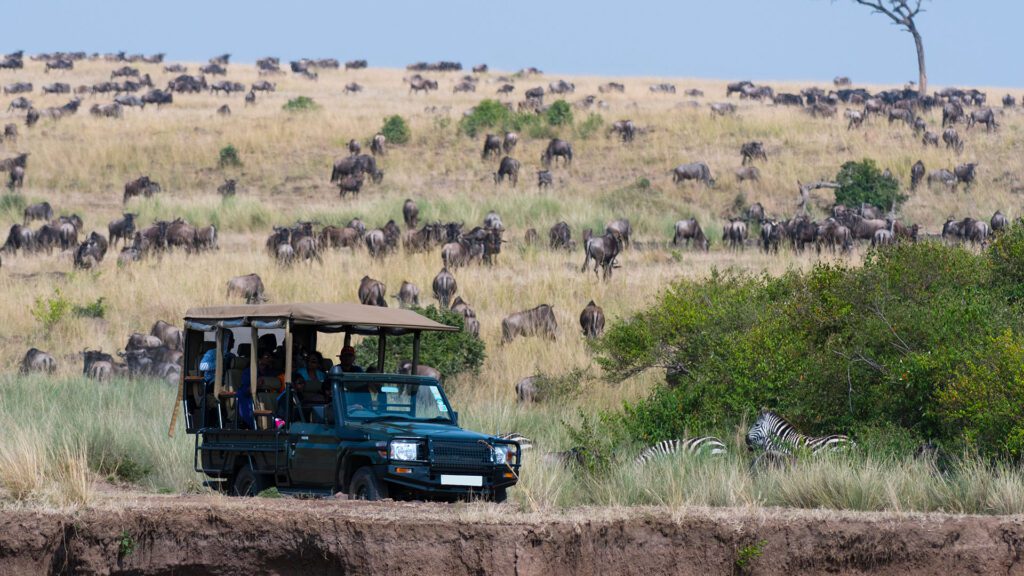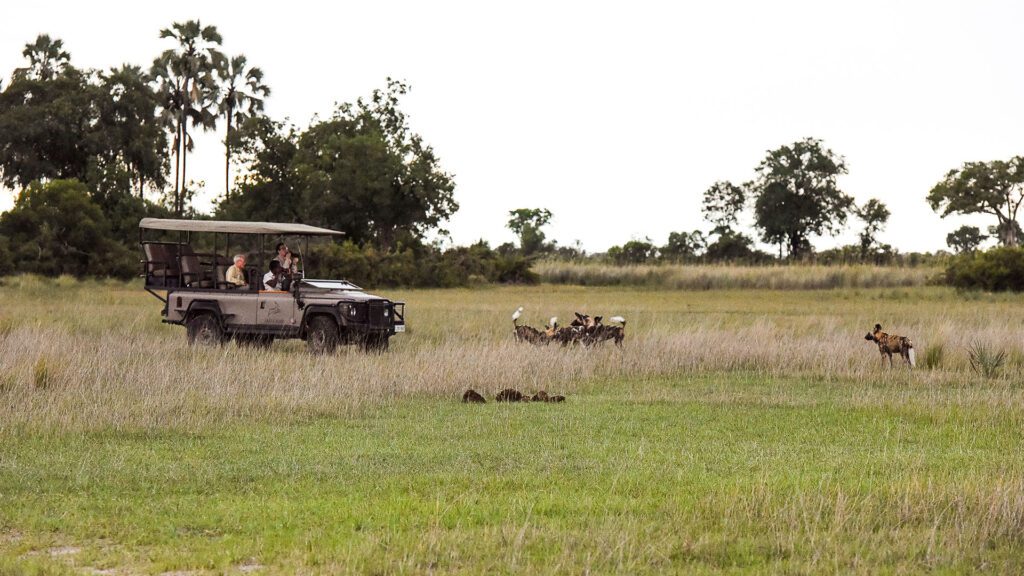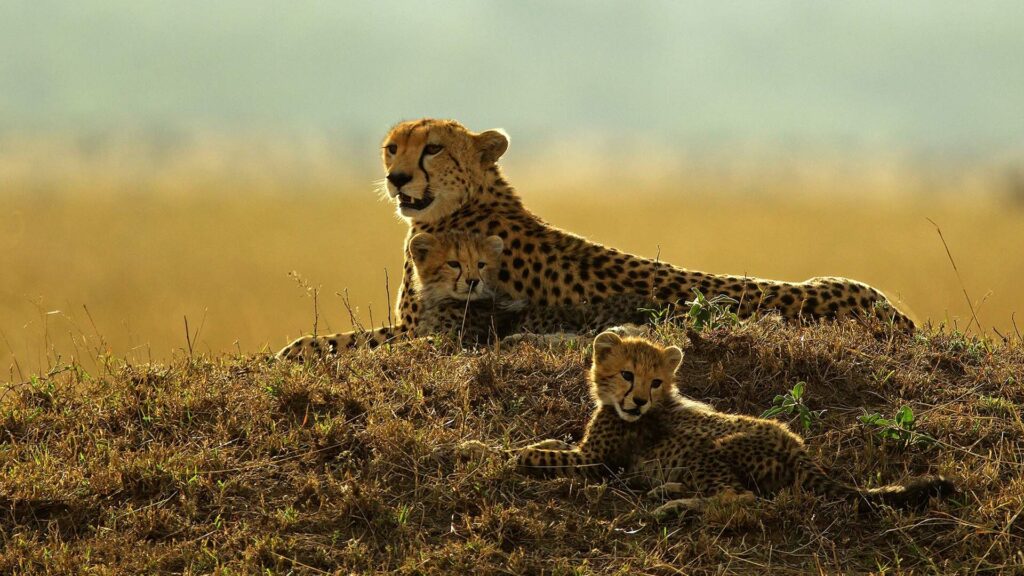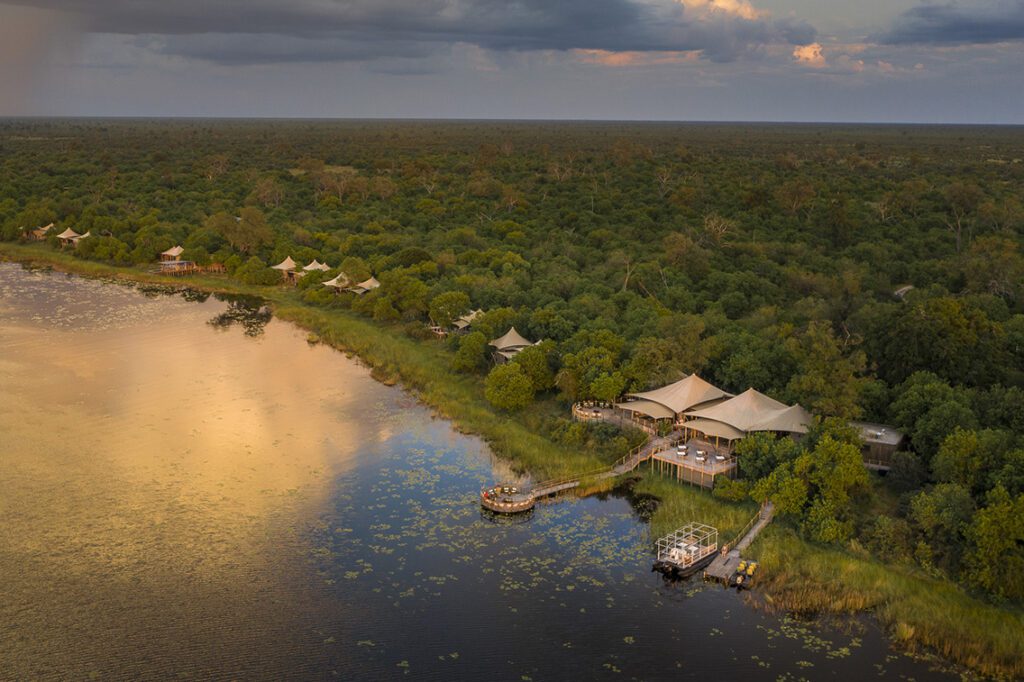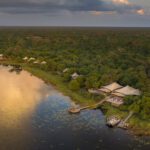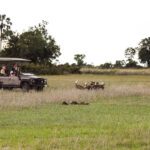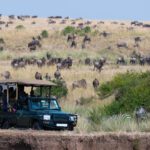An African safari is more than just a trip it’s a thrilling journey into the heart of the wild, where breathtaking landscapes and incredible wildlife encounters await. Whether you dream of witnessing the majestic Great Migration, spotting the elusive Big Five, or exploring remote bush territories, an African safari promises unforgettable memories and awe-inspiring moments.
This ultimate guide will help you start planning with confidence, offering expert advice on choosing the perfect destination, preparing for game drives, and making the most of your safari adventure. Get ready to immerse yourself in an amazing experience that belongs on every traveler’s bucket list.
What is a Safari?
A safari is an exciting adventure that allows you to experience the breathtaking beauty of Africa’s wildlife and natural landscapes firsthand. Did you know that Africa attracts over 74 million international tourists annually, with a significant portion drawn by its unique safari experiences?
From walking safari excursions to thrilling game drives, a safari offers you a unique opportunity to connect deeply with nature and witness animals in their wild habitats. Whether you’re eager to explore iconic parks like Serengeti National Park or venture into the lush Okavango Delta, your safari will undoubtedly be an unforgettable journey.
Choosing a Destination
Regions to Consider
When deciding where to go, consider the two main safari regions: East Africa and Southern Africa. East Africa, including Kenya and Tanzania, is famous for its incredible wildlife viewing opportunities, especially during the Great Migration.
Southern Africa, with countries like South Africa and Botswana, offers diverse safari experiences, including private reserves and vast national parks. You might want to visit renowned locations such as Kruger National Park in South Africa or Etosha National Park in Namibia to immerse yourself in the wild.
Planning Your Trip
When to Go
The best time for your safari depends on the region and the kind of experience you want. Typically, peak season falls during the dry season when animals gather around water sources, making wildlife viewing easier. However, visiting during the green season can reward you with lush landscapes and fewer tourists, often at a lower cost.
Booking a Tour Operator
How to Choose
Choosing the right tour operator is crucial for a smooth and enjoyable safari. Look for operators offering African safari packages tailored to your interests and budget.
Pay attention to the quality of accommodations, the expertise of safari guides, and the variety of safari excursions available. A knowledgeable tour operator will help you plan every detail and ensure your safety and comfort throughout your trip.
Preparing for Your Safari
What to Pack
Packing smartly can make a big difference. Bring comfortable clothing in neutral colors, sturdy shoes, and essentials like binoculars, a camera, and sunscreen. If you plan on walking safaris, pack appropriate gear and clothing to keep you safe and comfortable.
Safari Activities
Game Drives and More
Game drives are a highlight of your safari, offering you the chance to see incredible wildlife up close, including lions, leopards, giraffes, and elephants.
Many safari destinations also offer unique experiences like hot air ballooning at dawn or visits to local villages. Adding gorilla trekking to your itinerary can provide a once-in-a-lifetime adventure.
Safety and Health
Staying Safe
Your safety is the top priority. Always follow your safari guide’s instructions, especially around wild animals. Make sure you have all necessary vaccinations, including yellow fever and hepatitis A, and take malaria prophylaxis if you’re visiting malaria-prone areas.
Budgeting and Cost
Understanding Costs
Safari costs vary widely based on destination, accommodation level, and activities. Remember to budget extra for tips to lodge staff and safari guides, as gratuities are customary and appreciated.
Travel Documents
Visa Requirements
Before you travel, ensure you have a valid passport and any required visas. Some countries may also require a yellow fever certificate or other documentation.
Family-Friendly Safaris
Safaris with Children
Many safari destinations welcome families, offering activities and accommodations suited for children. Private reserves and national parks often provide safe and engaging experiences for young adventurers.
Photography
Capturing Memories
A safari is a photographer’s dream. Bring a good camera and binoculars to capture the stunning wildlife and landscapes. Your safari guide can also offer helpful tips to improve your shots.
Sustainability and Conservation
Responsible Tourism
As a responsible traveler, consider the impact your safari has on the environment and local communities. Choose tour operators committed to sustainability and conservation efforts to ensure your trip benefits both wildlife and people.
First-Time Safari Goers
Planning Your First Safari
If this is your first safari, do thorough research and select a reputable tour operator. Destinations like Cape Town or Victoria Falls can provide unique and memorable experiences. Don’t hesitate to ask questions and seek advice from experienced travelers or guides.
Safari Accommodation
Where to Stay
Safari accommodations range from luxury lodges to rustic tented camps. Staying within a national park or private reserve can offer a more immersive experience. Look for places with comfortable rooms, excellent food, and attentive service.
Day-to-Day Safari Life
What to Expect
Your typical safari day starts early with a wake-up call, followed by a morning game drive when animals are most active. After lunch and rest, you’ll head out again in the late afternoon for another game drive before returning to your lodge for dinner and relaxation.
Working with Safari Guides
The Role of a Safari Guide
A great safari guide is key to your experience. Look for guides who are knowledgeable, passionate, and skilled at spotting wildlife. They will answer your questions and keep you safe while enhancing your understanding of the ecosystem.
Tipping and Gratuities
Showing Appreciation
Tipping is customary to show appreciation for excellent service. Budget around 10-15% of your total safari cost for tips, including your guide and lodge staff.
Immunizations and Medications
Staying Healthy
Consult your doctor or a travel clinic to ensure you have all necessary immunizations and medications before your safari. Don’t forget malaria prophylaxis if recommended.
Conclusion
Final Tips
Planning a safari can feel overwhelming, but with careful preparation and the right support, it becomes an exciting and rewarding adventure. Stay flexible, keep an open mind, and enjoy every moment of your African safari.
Frequently Asked Questions
What should I expect on my first African safari?
You can expect early mornings, thrilling game drives, stunning wildlife sightings, and a mix of adventure and relaxation. Your guide will help you navigate the experience safely and informatively.
How do I choose the best safari destination?
Consider what wildlife you want to see, the type of safari experience you prefer, your budget, and the time of year. East Africa is famous for the Great Migration, while Southern Africa offers diverse landscapes and private reserves.
Do I need to be physically fit for a safari?
Most safaris involve some walking, especially on walking safari excursions, but the level of physical activity varies. Choose a safari that matches your fitness level and communicate any concerns to your tour operator.
Is it safe to go on a safari alone?
While solo safaris are possible, it’s generally safer and more enjoyable to travel with a group or a private guide who knows the area and wildlife behavior.
What vaccinations do I need before going on safari?
Common vaccinations include yellow fever, hepatitis A, and typhoid. Malaria prophylaxis is also recommended for many safari destinations. Always consult a healthcare professional well in advance.
Can I take my children on safari?
Yes, many safari operators offer family-friendly options with activities and accommodations suited for children. However, some camps have minimum age restrictions, so check in advance.
How much should I tip on safari?
Tipping is customary, with about 10-15% of your total safari cost recommended. You can tip guides, lodge staff, and drivers directly or add tips to your final bill.
What is the best time to see the Great Migration?
The Great Migration typically occurs between July and October in the Maasai Mara and Serengeti ecosystems, offering spectacular wildlife viewing opportunities.
What should I pack for a safari?
Pack neutral-colored clothing, sturdy shoes, a hat, sunscreen, binoculars, a camera, and any personal medications. Layers are essential as mornings and evenings can be cool.
How do I stay safe around wild animals?
Always follow your guide’s instructions, stay inside your vehicle during game drives unless told otherwise, and avoid sudden movements or loud noises near animals. Your guide’s expertise ensures your safety.

